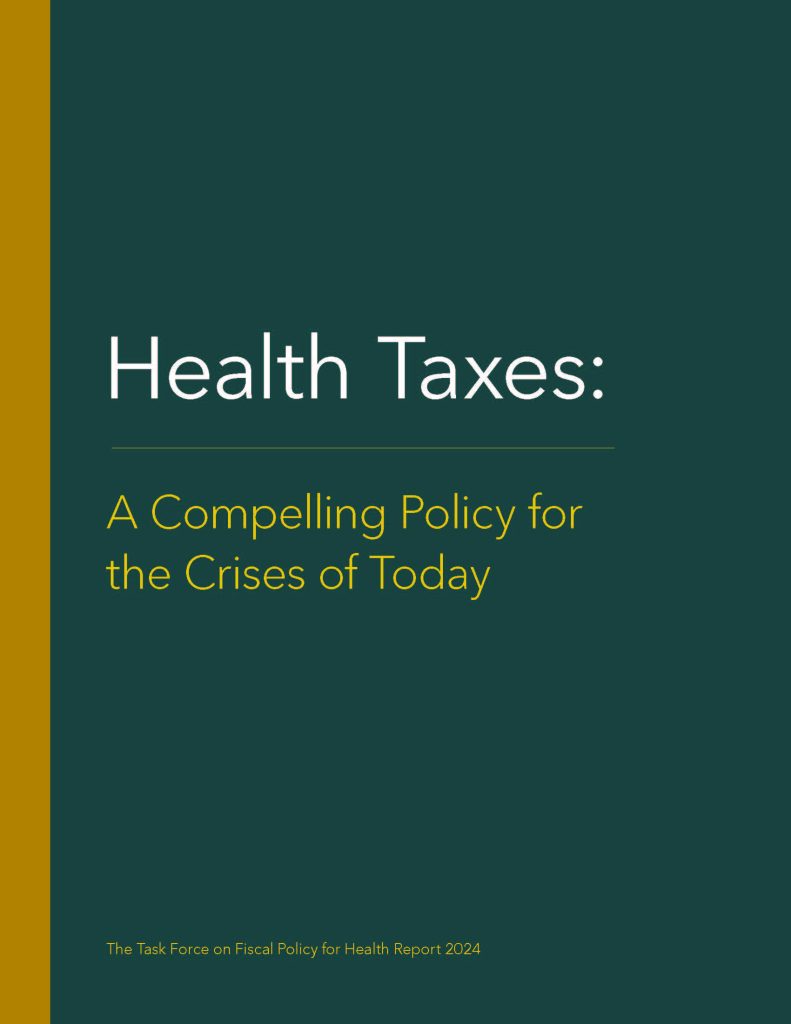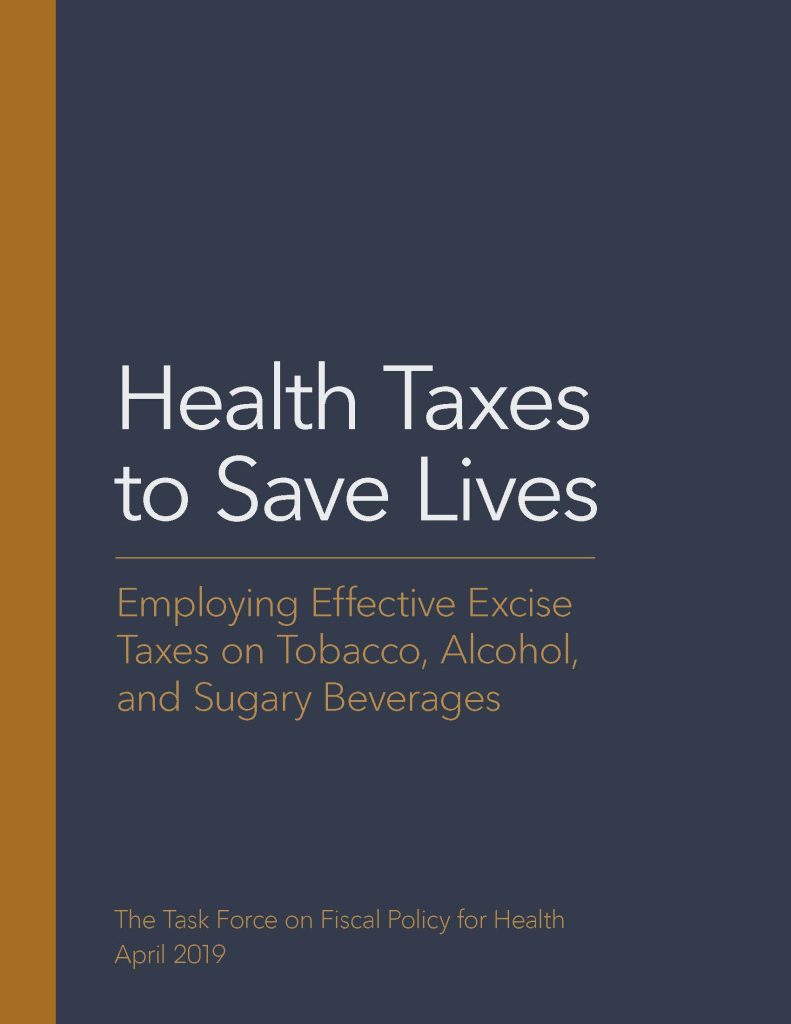Task Force on Fiscal Policy for Health
The Task Force on Fiscal Policy for Health convened in 2018 to address the growing global burden of noncommunicable diseases (NCDs). Co-chaired by Mike Bloomberg, Prime Minister of Barbados Mia Amor Mottley and renowned economist Larry Summers, and composed of fiscal policy, development, and health leaders from around the world, the Task Force works to draw attention to the role of fiscal policies to address the growing burden of NCDs worldwide.
NCDs are the leading cause of death in the world, killing more than 40 million people each year. Seventy-seven percent of NCD deaths occur in low- and middle-income countries, imposing a strain on health care systems, contributing to poverty, and obstructing development. Tobacco use, obesity, and alcohol consumption are three leading risk factors for the development of NCDs.
In 2019, the Task Force released an inaugural report concluding that health taxes were a highly effective but greatly underutilized policy tool to improve health outcomes, save lives and raise domestic resources. The report concluded that if countries increased their excise taxes to raise prices on tobacco, alcohol, and sugary beverages by 50 percent, over 50 million premature deaths could be averted worldwide over the next 50 years while raising over US $20 trillion of additional revenues.
Since the initial report, the world is experiencing a protracted health and fiscal crisis as a result of the COVID pandemic. Despite the potential for health taxes to address both the health and fiscal crisis, little progress has been made.
In response, the Task Force released a new report in 2024 highlighting the lack of progress and urgent need to raise health taxes to immediately ease fiscal pressures, reduce the burden of NCDs on struggling healthcare systems and most importantly save lives.
Reports and Resources
2024 Task Force Report:
Health Taxes: A Compelling Policy for the Crises of Today
Supporting Materials:
- Background Paper Briefs
- Health Taxes in the Polycrisis Era
- Using Fiscal Policy to Promote Health – A Five-Year Update on Taxing Tobacco Alcohol and Sugar-Sweetened Beverages
- Taxing Ultra-Processed Foods or Foods High in Fat, Sodium, or Sugar
- Global Effects of Increased Taxation of Tobacco, Alcohol, and Sugar-Sweetened Beverages on Tax Receipts: A Modelling Analysis
2019 Task Force Report:
Health Taxes to Save Lives: Employing Effective Excise Taxes on Tobacco, Alcohol, and Sugary Beverages
Supporting Materials:
- Background Paper Briefs
- Country Case Studies
- Tobacco, Alcohol, and Sugary Beverages in Low- and Middle-Income Countries: Harms, Consumption and Costs
- Using Fiscal Policy to Promote Health: Taxing Tobacco, Alcohol, and Sugary Beverages
- Structure and Tactics of the Tobacco, Alcohol, and Sugary Beverage Industries
- Modeling the Impact of Tobacco, Alcohol, and Sugary Beverage Tax Increases on Health and Revenue: Methods
Top photo: The bus displays a mass media campaign Bloomberg Philanthropies partners developed in Mexico to raise public support for front-of-package warning labels to help people make healthy choices. Photo credit: Alianza por la Salud Alimentaria

